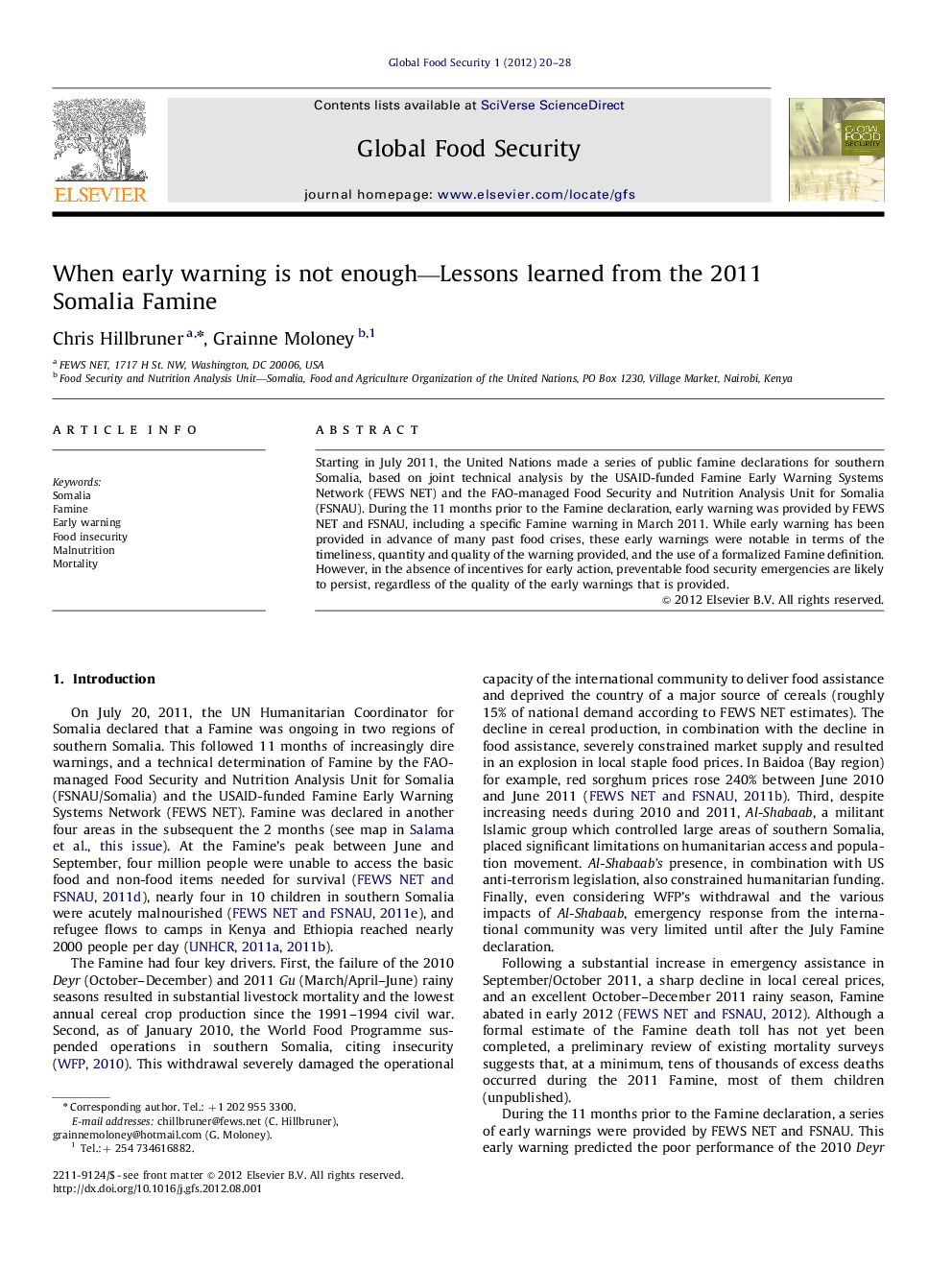| Article ID | Journal | Published Year | Pages | File Type |
|---|---|---|---|---|
| 1047618 | Global Food Security | 2012 | 9 Pages |
Starting in July 2011, the United Nations made a series of public famine declarations for southern Somalia, based on joint technical analysis by the USAID-funded Famine Early Warning Systems Network (FEWS NET) and the FAO-managed Food Security and Nutrition Analysis Unit for Somalia (FSNAU). During the 11 months prior to the Famine declaration, early warning was provided by FEWS NET and FSNAU, including a specific Famine warning in March 2011. While early warning has been provided in advance of many past food crises, these early warnings were notable in terms of the timeliness, quantity and quality of the warning provided, and the use of a formalized Famine definition. However, in the absence of incentives for early action, preventable food security emergencies are likely to persist, regardless of the quality of the early warnings that is provided.
► We describe the providers of early warning analysis in Somalia. ► We explain the early warning analysis that preceded the famine declaration. ► We highlight the successes and limitations of the early warning process. ► We identify the lessons learned and implications for policy and programming. ► Even in the presence of early warning there are few incentives for early action.
